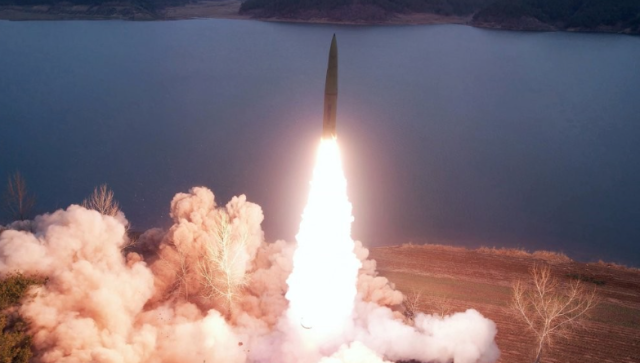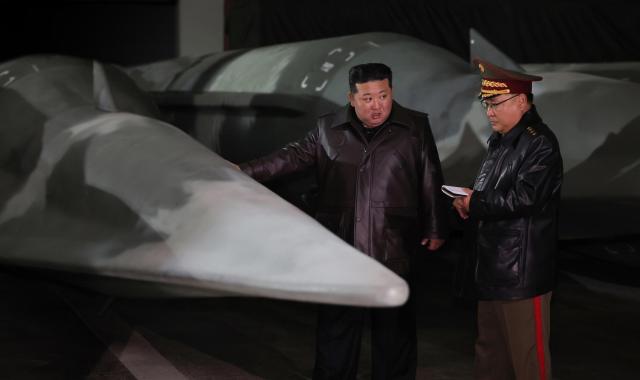
In 2023, Pyongyang fired a total of five intercontinental ballistic missiles (ICBMs), including "Hawseong-18," a solid-propellant rocket launched in July. A solid-propellant rocket uses solid-type fuels instead of liquid fuel. Compared to ordinary liquid fuel-type rockets, solid-fuel rockets are generally simpler in design and can carry more load.
On December 17, Pyongyang's defense ministry said through North Korea's state-operated media Korea Central News Agency (KCNA): "The U.S. and the military gangsters of the Republic of Korea, who have aggravated the situation in the Korean peninsula with their reckless military provocations such as deployment of nuclear strike means and large-scale joint military drills throughout this year, are going to finish the end of the year with a preview of a nuclear war."
The United States nuclear-powered submarine docked at Busan Port, South Korea's largest port in the southern city of Busan, on December 17, about one month after another U.S. nuclear submarine docked at a port in the southern resort island of Jeju in November. The visit by U.S. nuclear submarines is rare in South Korea but it became more frequent after Seoul and Washington agreed to increase the arrival of U.S. military assets to enhance efforts aimed at deterring North Korea.
South Korea's Joint Chief of Staff (JCS) said that a projectile suspected of an ICBM was fired from an area near Pyongyang into the East Sea at about 8:24 a.m. (2324 GMT) on December 18. "While our military has heightened its readiness posture along the border, we are closely sharing information with U.S. and Japanese authorities regarding the North Korean ballistic missile situation to maintain a comprehensive state of preparedness," the JCS said.
Pyongyang has been busy this year to show off its space rocket technology capabilities. Other than ICBM launches, North Korea made three attempts to put a military spy satellite into orbit and in its last try in November. Sending a satellite into space is technically similar to sending a nuclear warhead into orbit. While a satellite is designed to orbit the Earth, a warhead is designed to decrease altitude after reaching its maximum height to fly to its destination.
Copyright ⓒ Aju Press All rights reserved.





View more comments